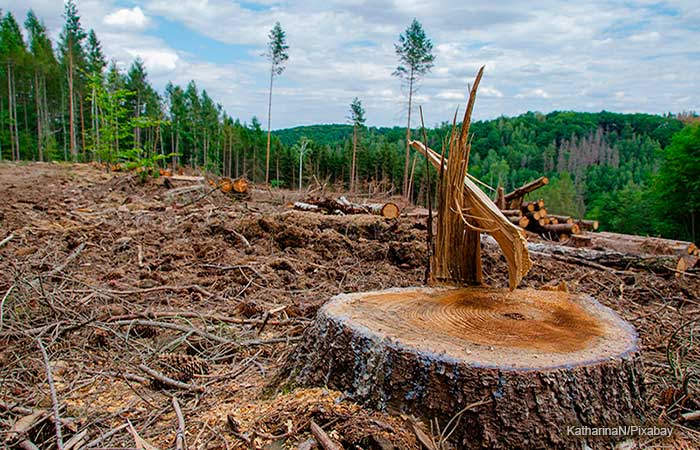FAQs about Deforestation of Forest

5. What is the relationship between deforestation and global warming?
According to the 2018 FAO report, entitled “The State of the World’s Forests”, deforestation is the second leading cause of climate change, behind the burning of fossil fuels, and represents almost 20% of all emissions of greenhouse gases, and is larger than the entire transport sector in the world combined. Between 24% and 30% of the total mitigation potential can be obtained by reducing tropical deforestation.
Through photosynthesis, a function carried out by trees and the vast majority of plants, they absorb and store CO2, which is fixed in their roots, trunks and leaves in the form of carbon. The plants, although they take oxygen from the air and re-enter carbon dioxide, the final balance is positive in terms of the extraction of CO2 from the atmosphere. The carbon dioxide absorption capacity is directly proportional to the size, density and number of trees present in a forest. In conclusion, the greater the amount of deforested forest, the greater the increase in global temperature. (SGK-PLANET: The Amazon and the extraction of CO2 from the atmosphere)
Trees have a double vital function: they produce oxygen, essential for the life of most species, and absorb carbon dioxide (CO2), the main component of greenhouse gases (GHG), which cause global warming and the climate change.
FAQs about Deforestation of Forest
1. What is deforestation, what are its causes or objectives and consequences?
2. What is a primary forest and what percentage do they represent on the planet?
3. How are deforestation and water scarcity related?
4. What is the relationship between deforestation, drought, and forest fires?
5. What is the relationship between deforestation and global warming?
6. How does deforestation affect habitats and ecosystems?
7. What is the importance of the Amazon rainforest for South America?
8. What are the dangers that threaten the Amazon rainforest?
9. Why is deforestation in the Borneo rainforest considered an ecological catastrophe?
